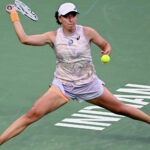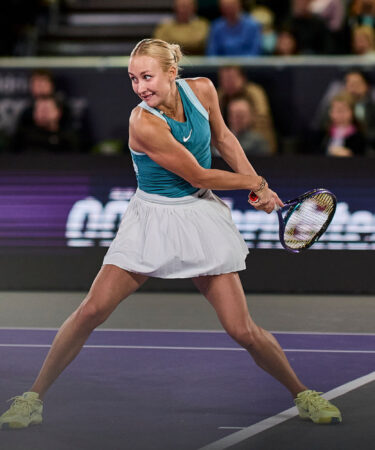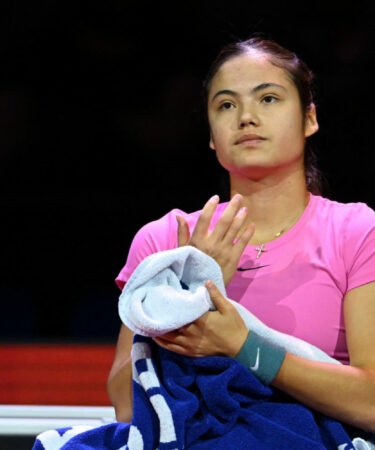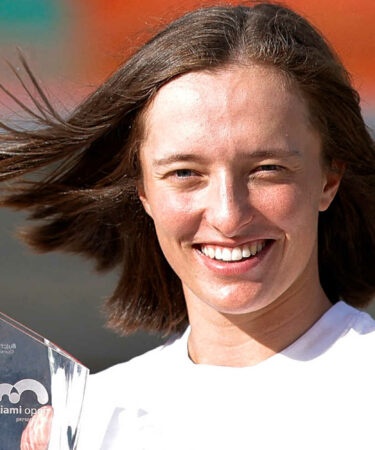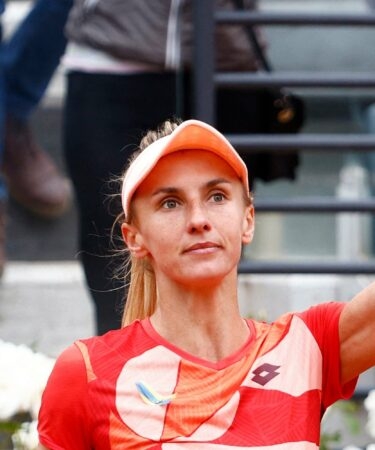Swiatek calls on WTA to help Ukrainian players more
The world No 1 criticised the WTA Tour leadership for not laying down guidelines for players in light of Russia’s invasion of Ukraine and admits there is tension in the locker room
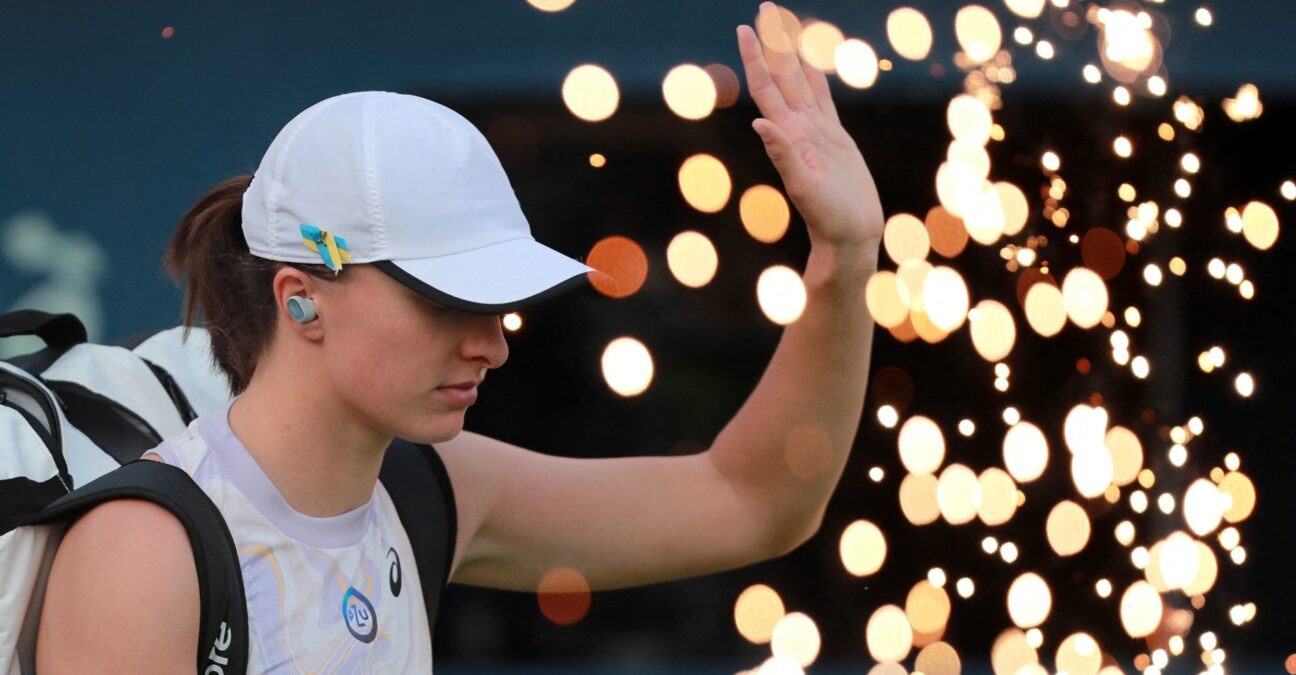 AI/Reuters/Panoramic
AI/Reuters/Panoramic
When Iga Swiatek speaks, people tend to listen.
The world No 1 has never been afraid to offer her opinion on important subjects inside and outside tennis and at the BNP Paribas Open on Tuesday, the Pole called on the WTA to do more to help the Ukrainian players whose lives and families have been affected by the ongoing invasion of their country by Russia.
Swiatek has been openly supportive of Ukrainian players throughout the war, including organising a charity match in Poland which raised more than 400,000 euros. Speaking after her fourth-round win over Emma Raducanu and a day after Anastasia Potapova drew criticism for wearing a red Moscow football shirt, Swiatek said the focus needs to be on Ukrainians.
“Well, for sure it’s a tough situation,” she told reporters. “For me, it’s pretty emotional because I feel like these situations are happening, like both with people that are wearing Russian team football T-shirt, because at the beginning we kind of didn’t have proper leadership to guide us through all of that, and there is a lot of tension in the locker room that — well, obviously it’s going to be there, because there is a war.
“But maybe it should be a little bit less if WTA put some action at the beginning to kind of explain to everybody what is right and what is not.”
Swiatek wants focus on Ukraine, not what Russian and Belarusian players can and can’t do
Ukrainian player Lesia Tsurenko pulled out midway through Indian Wells, explaining that she had suffered a panic attack after a meeting with the WTA CEO Steve Simon, whom, she said, had not offered her the reassurance she and other Ukrainians desire about their plight, and the way the WTA should act, including helping Ukrainian players once they’re knocked out of events as they cannot return to their families.
“I totally understand why she withdrew, because honestly, like, I respect Ukrainian girls like so much, because if like a bomb landed in my country or if my home was destroyed, I don’t know if I could handle that, honestly, and play on WTA and compete,” Swiatek said.
“You have to really mentally be there to compete every week. So I totally get that she wasn’t, you know, ready to do that. And, well, like I feel there should be done a little bit more to kind of help Ukrainian players, because I feel like the more — like, everything we discuss in tennis is more about Belarusian and Russian players if they should be allowed, like what’s going on with them.
“I don’t think that’s right, because we should more focus on helping Ukrainian players and providing them everything that they need, because they basically have to take care of like all their families, and there’s a lot of baggage on their shoulders. I’ll try to kind of help with that as well, because I guess with everything that is happening, the actions that were taken up to this point were, I don’t think they were enough.
Wimbledon, which last year was the only Grand Slam event to ban Russian and Belarusian players in response to the war, is reportedly set to lift the ban for this year’s Championships.
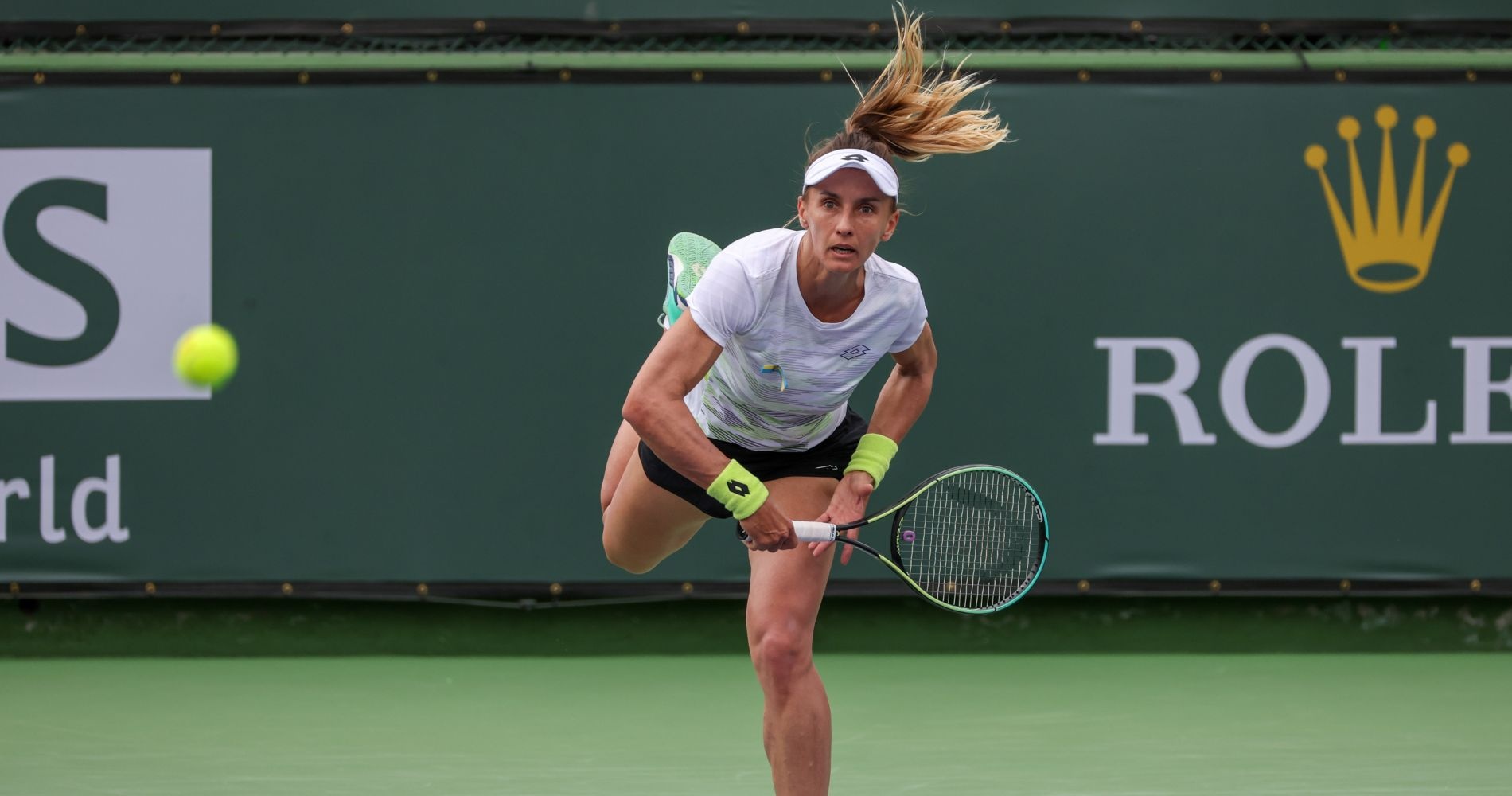
Swiatek: “We should think about what is at stake”
With everything that is going on…I think…we should think in like more broad horizon and not be worried about if we’re going to earn money that week or next week but more about, you know, what’s at stake and what are actually the actions that may kind of stop the Russian aggression.
“I feel like with everything that we are doing in tennis and with us being kind of examples for kids and for fans, we also bear some responsibility. It’s unfortunate that some people were born in countries that make the war, but I feel like with that responsibility should come — like, they should be more responsible sometimes. I don’t know how to finish that sentence.
“I hope you understand what I mean. I think honestly we, as tennis players, are in a better situation than most of the people in Russia and Belarusian and Ukraine, because there are many people who kind of lost their job because of the war. I think like with the money that we are earning, even the Russian and Belarusian players are kind of safe.
“I think we all have the responsibility to kind of show the right example and right things. You know, I don’t have influence on some people’s values, but I think we are the ones that should set a good example. There is a responsibility on every of us, and that’s why we’re making that kind of money. That’s why we’re in media.”
People in this post
More tennis news
“Shame” – Zverev regrets losing Rio quarter-final to Comesana from a “winning position”

Alexandre Muller defeats Cerundolo, reaches first ATP 500 semi-final

February 22, 2007: The day Wimbledon finally announced it would award equal prize money

Francisco Comesana stuns Zverev to reach Rio final four
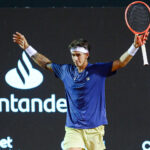
Rio Open: Lucky Loser Ugo Carabelli makes semi-finals



